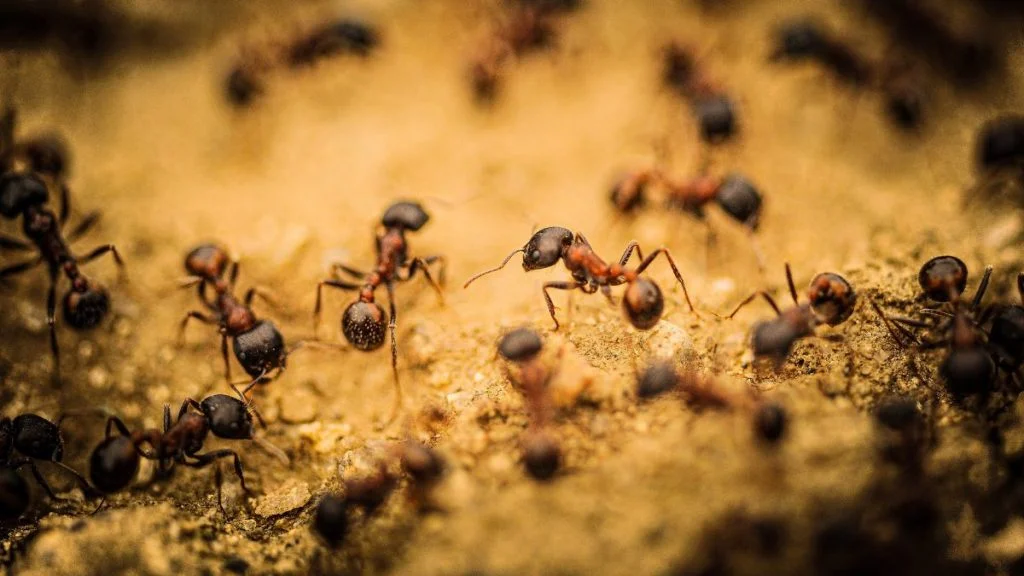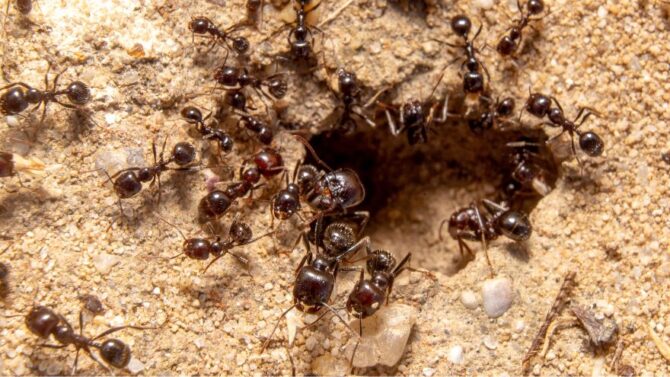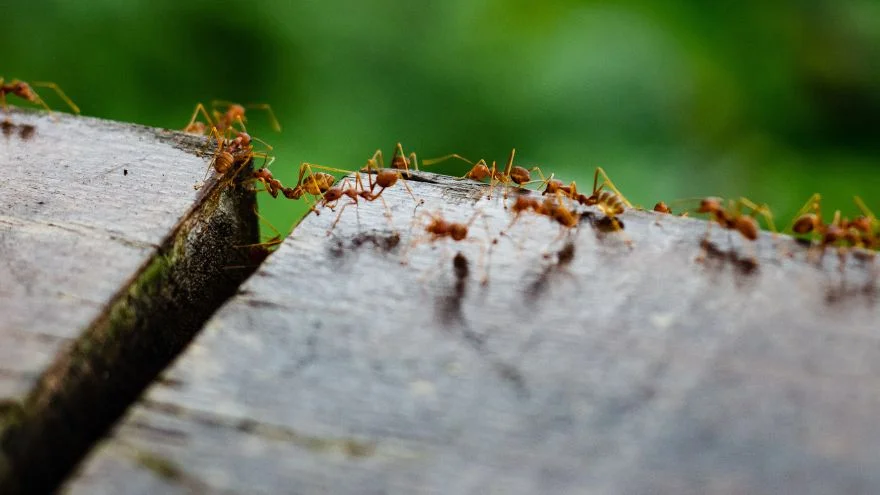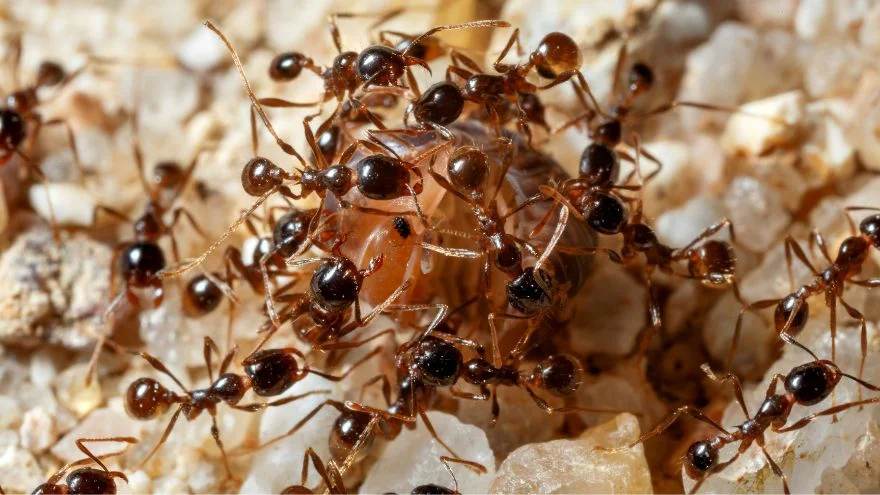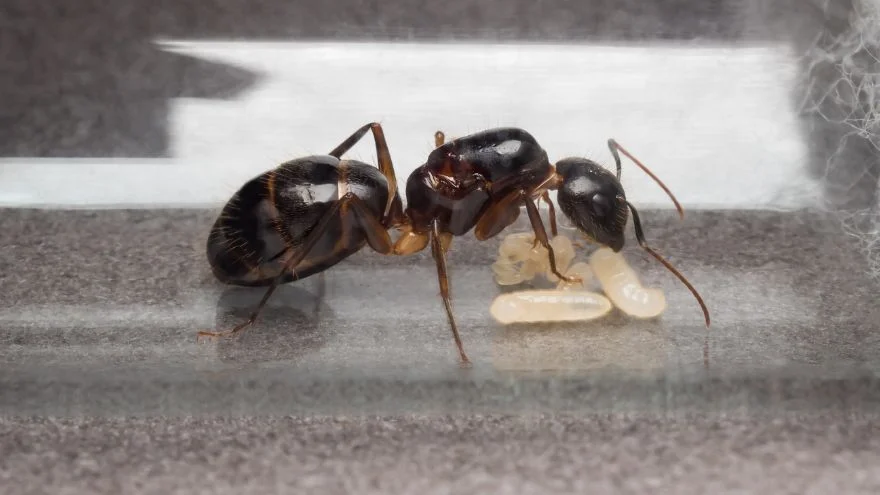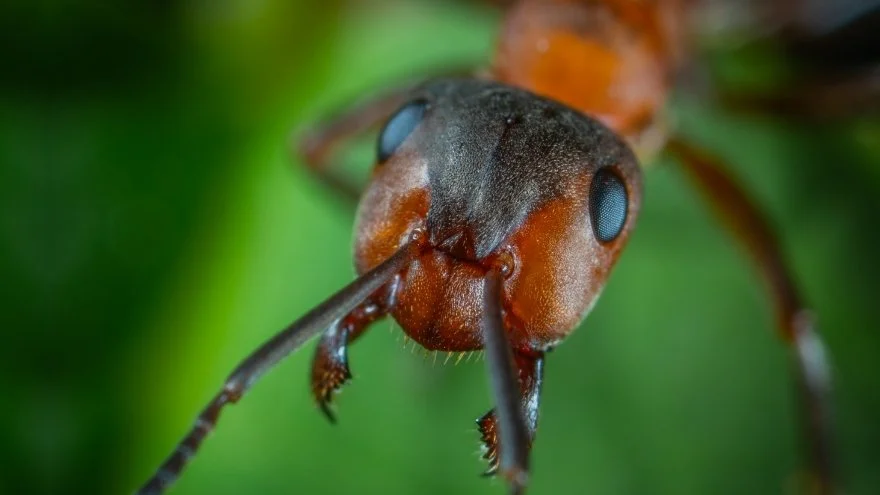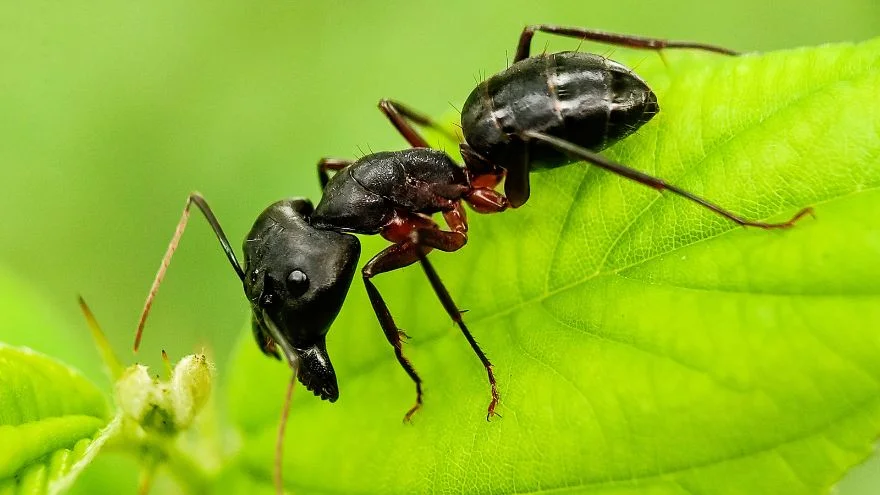It is necessary for ants to eat food because it serves as fuel to keep them going.
But the question that begs an answer from most people is: Do ants pee and poop?
Yes, ants poop. Just like most animals, ants need to pass out toxic solid waste matter collected in their bodies.
Although ants poop, they do not pee. Instead of urinating, moisture is removed from their urea to form uric acid which is then excreted as part of the frass (poop).
This article explains why ants poop and not pee, provides interesting and important details, and answers frequently asked questions regarding ants’ waste products
Let’s look in-depth into the facts.
Do Ants Poop?
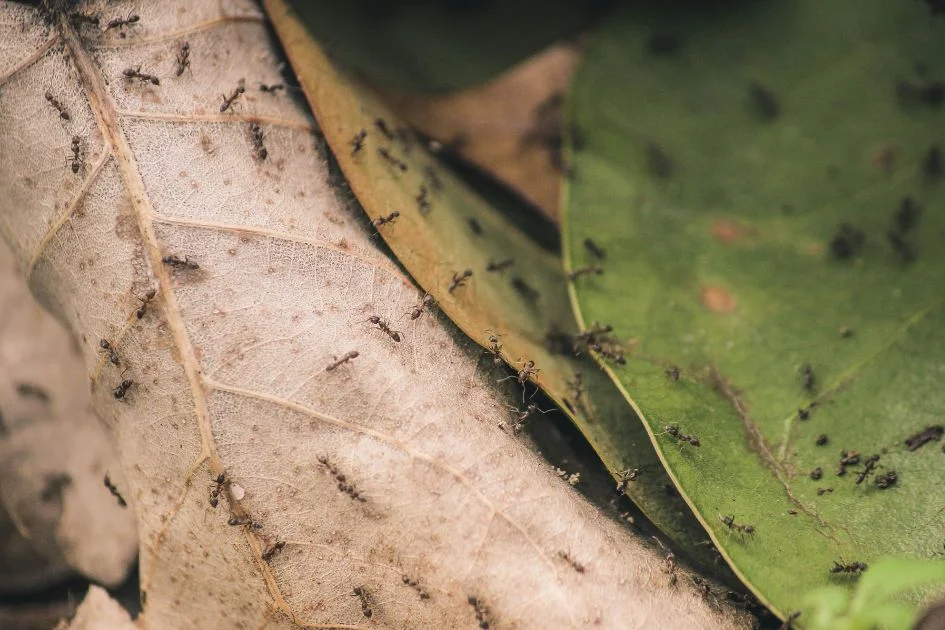
Ants depend on food to give them energy and required nutrients.
But everything they consume doesn’t get transformed into energy as some become toxic waste that needs to be ejected out of their bodies.
Ants poop. Their waste matter is mainly in solid form than in liquid form. The ant’s poop is the semi-solid waste material taken out from an ant’s body, which is referred to as “frass.”
Most times, an ant’s frass doesn’t just contain the metabolized waste materials of the ants. It also contains debris that an ant wants to get rid of.
An example is the carpenter ant that builds its tunnels on woody surfaces and consumes lots of things that are not beneficial to its health.
They discard all the wood shavings and irrelevant stuff eaten in its poop.
Do Ants Pee?
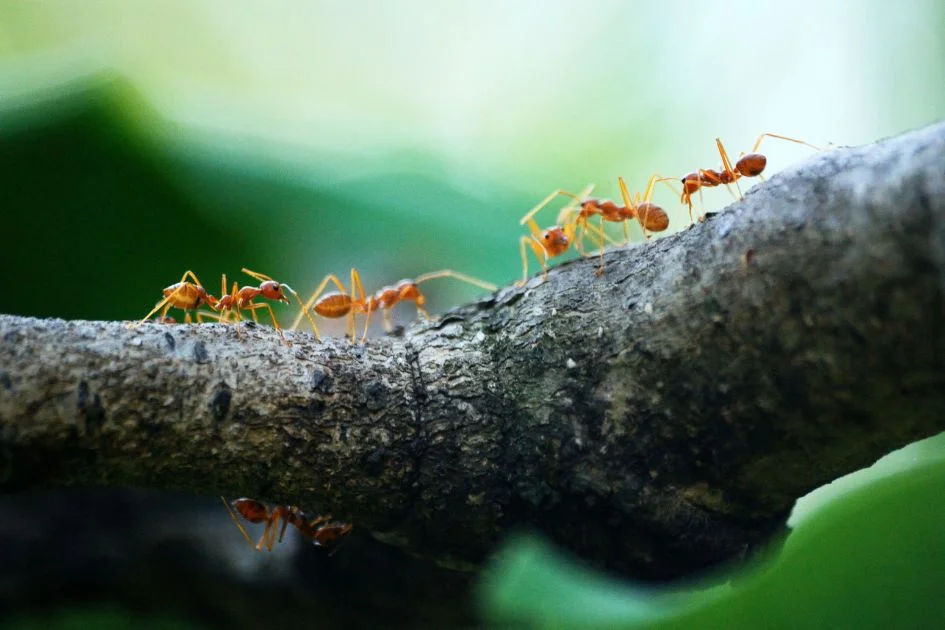
No, ants do not pee. Their nitrogenous wastes are transformed into a dry powder called uric acid, which mixes with the other waste in their bodies and comes out as poop.
Just like many insects, they try to retain moisture because they tend to dry out due to how their exoskeleton is built.
So, ants expel urine together with their poo instead of doing it separately in order not to lose excess water.
What Does Ant Poop Look Like?
The appearance of an ant’s poop depends on its diet. But in general, it is a dry and powdery substance with a dusty brown and dark unique appearance that’s not exactly visible to our naked eyes.
It doesn’t come in large amounts as it’s oftentimes so small that you can hardly notice it.
Ant poop is also not exactly solid as it still has some moistness in them because of its urine content, but it is more solid than liquid (semi-solid).
How is an Ant’s Poop Formed?
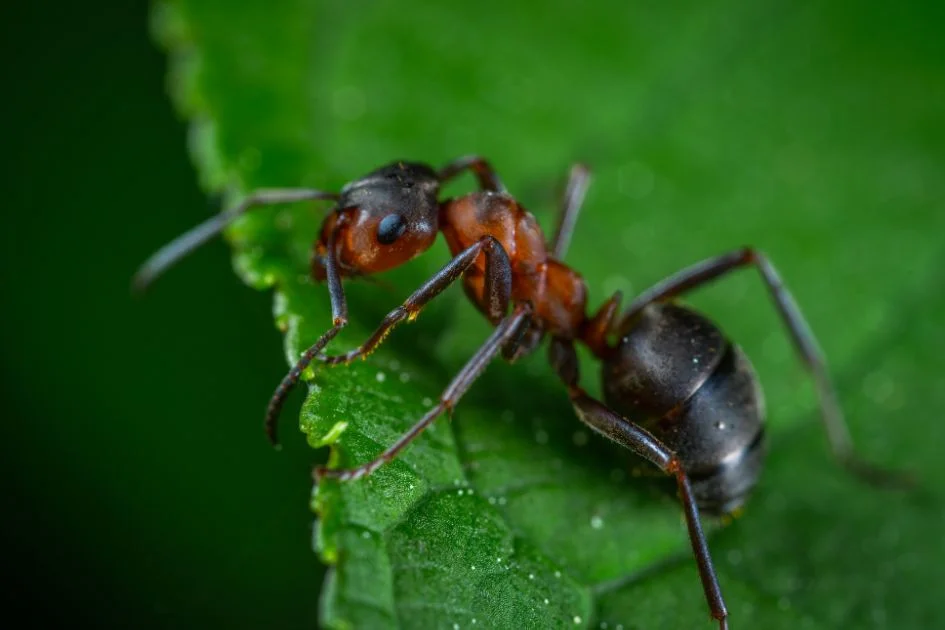
Ant poop is formed as a result of its digestive process. Feces is generated and absorbed by the Malpighian tubules which is a major part of an ant excretory system.
Though the digestive process in ants is quite different from the one in humans we know that they too have an anus through which they push out the poo.
Not one study has been made about ants’ defecation yet.
Since we haven’t had the opportunity to see an ant defecate, it can be hard to say exactly what goes on in the final stages of poop formation.
How Does An Ant Know It Wants To Poop?
When an ant’s abdomen increases while eating, this is a sign that it wants to poop.
After all the waste products have been expelled, the abdomen returns to its original size.
Where Do Ants Poop?
Contrary to the belief that ants can poo wherever they find themselves, Scientists have recorded behavior that shows that ants practice safe and hygienic waste elimination.
Most ant species have a corner in their nests where they do their toilet business. Fecal matter has microbes and pathogens that are extremely dangerous.
That’s why when the queen ant and other ants in the colony pass out wastes, the worker ants help take it out to the midden—an outdoor garbage dump to prevent the outbreak of disease within the nest.[1,2]
How Often Do Ants Poop?
As long as ants keep on ingesting food, they will expel wastes from their bodies on a regular basis.
Do Ants Eat Their Poop?
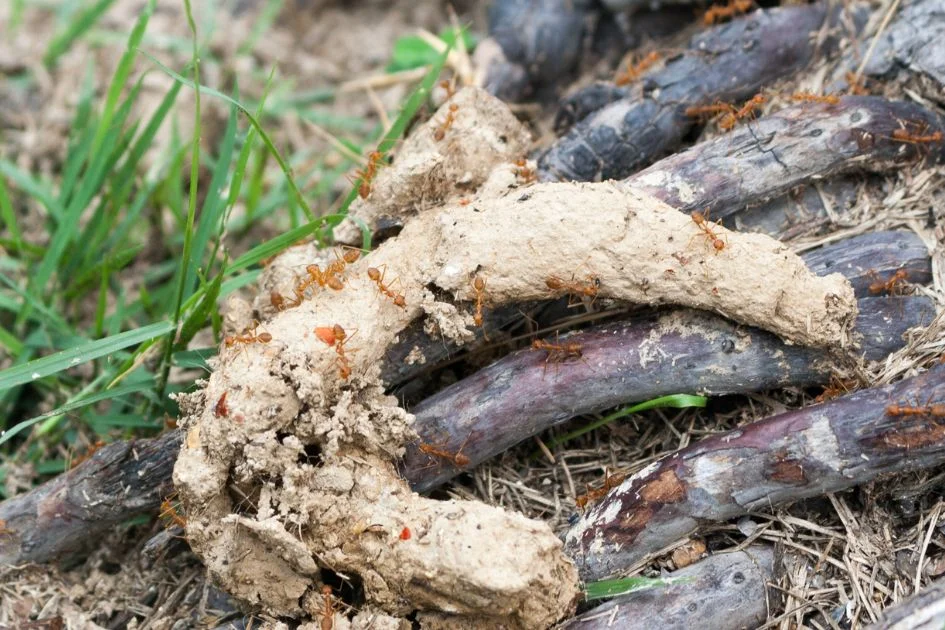
Ants won’t eat their poop because of how toxic it can be, but a few ants that need more protein in their diet than others will eat the poop of other animals.
Some of these ants include the Pharoah ant, fire ant, and acrobat ant.
Generally, ants love protein and will go for anything that can be eaten, provided it is rich in protein, e.g. dogs’ feces.[3]
FAQs
Can ants fart?
It is possible for ants to fart as they have the necessary organs to facilitate it.
However, we can’t answer this question correctly because, to date, no research has been carried out to determine if they can or cannot fart.
Is an ant’s poop dangerous to humans?
There is a high chance that the feces of ants can make humans sick because of the pathogens in them.
But since ants defecate exclusively in their nests, there is no likelihood of people coming in contact with the poop.
Does ant poop have any benefits?
The feces of ants can serve as fertilizer. When they deposit their water into the soil, it can help boost the growth of plants as it’s a very important source of food to them.
Wrap Up
Ants regularly consume food, so they need to pass out waste in order to stay fit and they do this by pooping.
Unlike mammals, they do not pee, instead, they pass out urine as part of their poo.
Ants are really wise insects that are aware of the toxicity of their feces, so they’re particular about places they defecate, especially in their nests.
They create spaces inside their nests to eliminate waste and employ the services of the worker ants to take it out when necessary.
References & Notes
- Marissa E. Cole, Javier A. Ceja-Navarro, Aram Mikaelyan, October 28, 2021. “The power of poop: Defecation behaviors and social hygiene in insects.” https://journals.plos.org/plospathogens/article?id=10.1371/journal.ppat.1009964
- Tomer J. Czaczkes, Jürgen Heinze, Joachim Ruther, February 18, 2015. “Nest Etiquette—Where Ants Go When Nature Calls.” https://journals.plos.org/plosone/article?id=10.1371/journal.pone.0118376
- All Solutions Pest Control. “Ants.” https://www.allsolutionspestcontrol.com/ants/
